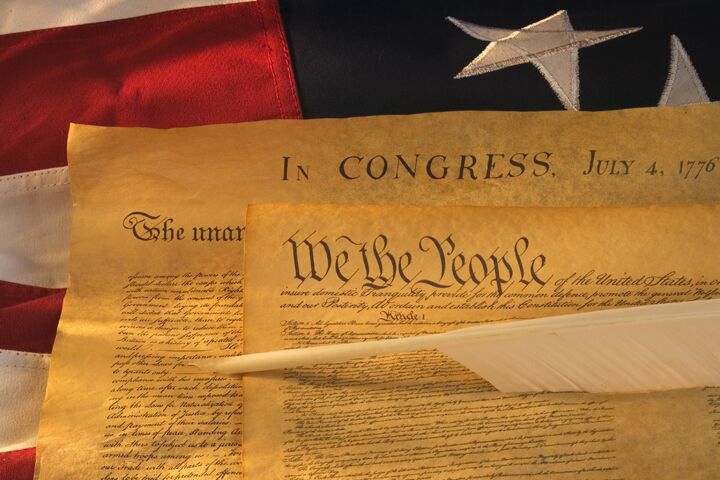
A July 4 Reminder
“We hold these truths to be self-evident, that all men are created equal, that they are endowed by their Creator with certain unalienable rights, that among these are life, liberty and the pursuit of happiness.”
With this riveting sentence, our Founding Fathers announced to the colonies and the entire world why the United States of America was formed. It is difficult if not impossible to think of any better expression of the core principles of the new nation in the Unanimous Declaration of the Thirteen United States of America.
Drafted by Thomas Jefferson and approved on July 4, 1776, the document was intended not only to announce to the world the 13 colonies’ independence from the British crown, but to give future American citizens a memorable document of what the nation stood for. It was to become a powerful statement that Americans could study and learn from in generations to come.
The Declaration’s power to captivate people and nations around the world lies mostly in that second paragraph, about a Creator endowing unalienable rights, and that the government is meant to secure those rights. With this paragraph, the founders demonstrated the two biggest forces in the political creation of United States: religion and the rule of law.
Our Founding Fathers would have been well familiar with verses such as these: “And ye shall know the truth, and the truth shall make you free” (John 8:32). They would have read 1 Peter 2:16: “Live as free men, yet without using your freedom as a pretext for evil but live as servants of God” (Revised Standard Version). They would have known Christ’s words, “I am come that they might have life, and that they might have it more abundantly” (John 10:10).
From the beginning, the settlers came to America with a strong sense of God and a firm foundation in religion. In A History of the American People, historian Paul Johnson wrote (emphasis mine):
For America, we have no ancient national myth or prescriptive legends but solid facts, set down in the matter-of-fact writings of the time. … And through letters and diaries we are taken right inside the minds of the men and women who made it happen. There can be no doubt then why they went to America. Among the leading spirits, those venturing out not in the hope of a quick profit but to create something new, valuable and durable, the overwhelming thrust was religious.
This religious background was one of the primary forces in the creation of the United States and its government. The year Jefferson drafted the Declaration of Independence, John Adams wrote to his cousin, “It is religion and morality alone which can establish the principles upon which freedom can securely stand.” These statements might sound strange to Americans today, but it was accepted as truth by our Founding Fathers. (Read our booklet No Freedom Without Law.)
It was with this religious background that the Founding Fathers were able to establish a government built on its second-greatest principle, the rule of law.
To secure their freedoms, the Founding Fathers knew that a government dedicated to the rule of law was absolutely necessary. The government owed its existence to securing those rights, and therefore it was subject to the laws that guaranteed those rights, as Jefferson wrote.
The Constitution is the culmination of that principle. It is the supreme law of America. It grants the government its authority to protect that document and the people’s unalienable rights that it defines. All our governing agencies, legislators, judges and presidents are bound to uphold the Constitution.
This principle, like John Adams said, was also established by religion. The concept of rule of law, and even unalienable rights, wasn’t new to the colonies. They would have taken these ideas with them from Britain, a country which was also developing and incorporating these concepts into its government around the same time. However both concepts have an earlier source: the Bible.
The government the Founding Fathers were endeavoring to create was a democratic imitation of the kingdom of Israel, where its kings, and therefore its government, were commanded to obey and uphold God’s law. Even an imitation of our Creator, Jesus Christ, who set the example of living His life in perfect subjection to the law of God. For the Founding Fathers, this was the example government should follow: perfect subjection to the law of the land.
Later, in 1798, John Adams wrote, “Our Constitution was made only for a moral and religious people. It is wholly inadequate to the government of any other.” If people aren’t religious and moral, there is no way for the rule of law to remain established. When the people lose that focus, this nation’s Constitution loses its effectiveness, and the government will fall short in protecting those unalienable rights the Founding Fathers were trying to secure.
This Fourth of July, take time to read the Declaration of Independence. We can still recognize in it the primary forces behind the creation of our nation that day: religion and rule of law.
By studying this document and the history around it, we will better understand the powerful forces that made this great nation possible. In the reverse, it also shows us that if these fundamental principles are lacking, then the nation’s greatness will be lost.
